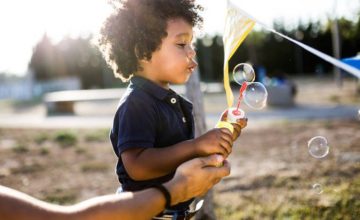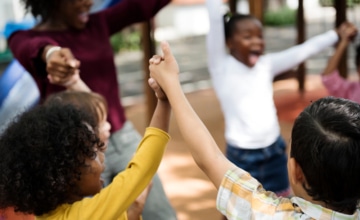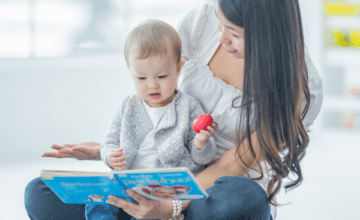Children learn best through their everyday experiences with the people they love and trust, and when the learning is fun.
With so much emphasis today on preparing children for school, parents are eager to know how they can help their young children learn. This booklet is designed to help you understand what you can do to get your baby or toddler off to the best start by using your everyday interactions to teach the basic skills she will need to cooperate, get along with others, and be an enthusiastic learner.

- Language and Literacy Skills Language provides the foundation for the development of literacy skills. Learning to communicate through gestures, sounds, and words increases a child’s interest in—and later understanding of—books and reading. Talking, reading aloud, and singing all stimulate children’s understanding and use of language, and help them learn to become good communicators and eager readers.
- Thinking Skills Children are born with a need to understand how the world works. They start by making basic associations such as, “I call out, dad comes.” As they grow, they develop more and more complex ways of figuring things out. In their everyday experiences, children use and develop an understanding of math concepts, such as counting and sorting and problem-solving skills that they will need for school. For example, a 2-year-old figures out that she needs to get one more cookie because another friend has come to the snack table.
- Self-Control Self-control—the ability to express and manage emotions in appropriate ways—is essential for success in school and healthy development overall. It enables children to cooperate with others, to cope with frustration, and to resolve conflicts. Young children learn these skills through interactions with others and guidance from you.
- Self-Confidence When children feel competent and believe in themselves, they are more willing to take on new challenges, a key ingredient for school success. Self-confidence is also crucial for getting along with others and working out the many social challenges—such as sharing, competition, and making friends—that children face in school settings. Self-confident children see that other people like them and expect relationships to be satisfying and fun.
Downloads




